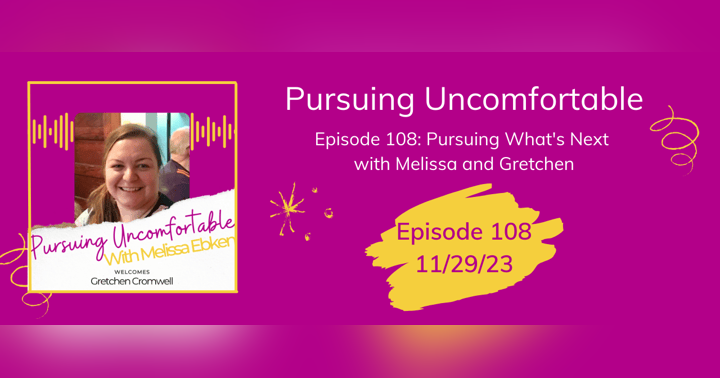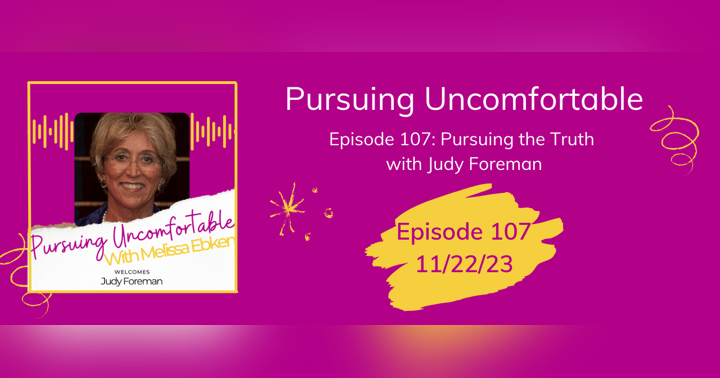Key Strategies for Successful Co-Parenting with Rosalind Sedacca

Divorce is never an easy decision to make, especially when children are involved. The impact of divorce on children can be significant, but sometimes staying together for the sake of the kids can be equally damaging to their growth and relationships. This was the topic of discussion in Episode 88 of the Pursuing Uncomfortable podcast, where guest Rosalind Sedacca spoke about pursuing healthy children after divorce.
One of the primary reasons for divorce is tension at home, which can affect the children's well-being. Unhappy parents may not be good role models for children to form mature and healthy relationships. Rosalind's own experience of parents staying together for their children's sake resulted in a toxic childhood, and she suffered tremendously. She ultimately realized she and her husband were becoming like her parents and they didn't want their children to experience the same sadness, prompting them to end the relationship and, ultimately, remarry.
Tools for successful co-parenting include communication and scheduling tools, such as Our Family Wizard. Both co-parents need to trust each other and ensure accountability for handling their children's needs. Parents need to make decisions based on what's best for their children, not as a way to get back at their ex-spouse. Children with co-parents who are aligned in their parenting decisions have an easier time adjusting post-divorce.
When parents start dating after divorce, they need to be mindful of the other dependent children and the potential challenges of blending families together. It's important to respect and listen to your own children, and not expect a new partner to be a disciplinarian or parent to your child. Blended families can be challenging, and parents need to learn about parenting in this new context. It's important to give children a sense of security by communicating with the other parent and making decisions together, to reduce stress and help them feel that parenting is still normalized.
Childcentereddivorce.com has a free ebook, blog articles, and various resources for parents going through divorce. The website offers ebooks and courses on topics such as breaking the news to kids, co-parenting success strategies, and dating after divorce. Rosalind emphasizes the importance of co-parenting success strategies.
Parents can avoid stress, turmoil, chaos, and confusion in divorce or post-divorce experiences. People don't have to follow what others have done in their situations. There are choices every step of the way to have a harmonious and cooperative divorce/post-divorce experience. Rosalind advocates putting oneself in the children's shoes to make decisions that benefit them. She helps parents going through divorce avoid mistakes and conflicts and save money by not involving child-unfriendly lawyers. She works with both parents and encourages them to prioritize their children's happiness over individual interests. The ultimate goal is to achieve harmonious co-parenting for the sake of the children's well-being.
Rosalind emphasized several things that parents should keep in mind while dealing with their children before, during, and after divorce. Children must know that their parents see each other and interact cooperatively. It is essential to leave behind the hurt and anger and be united for the sake of the children. It's common for parents to not be on the same page, but the parent who is more mindful should use communication skills that don't put the other parent on the defensive. Communication tools like writing instead of fighting on the phone, using "I" language instead of pointing the finger, and catching your co-parent doing something right can help.
Be as cooperative as possible, even if the parenting plan is very structured. If communication is toxic, do parallel parenting with more regimented agreements. Trust your own experience with your kids and take notes as evidence if necessary. Avoid micromanaging each other's lives and using the kids as messengers. It's important to avoid conflict around children, whether parents are married or not, as it can harm them emotionally and psychologically. Children cannot fix adult relationship issues and should not be involved in them. Badmouthing one parent to children hurts them and changes who they are. Children should not be confidants or messengers in co-parenting relationships. Positive communication is the key to healthy co-parenting relationships.
Rosalind and her husband got a divorce when their son was 11 years old and had been married for close to 20 years. They put off getting a divorce because they didn't want to negatively impact their child. They eventually realized that their child was showing symptoms of stress and tension due to the fighting at home, and decided to divorce. Rosalind believes that their decision to get a divorce was difficult but ultimately the smartest choice for their child. They learned how to co-parent and believe that it is a lifelong experience. Rosalind's son thanked them for handling the divorce well, which inspired her to found the Child Centered Divorce to help parents understand that being mindful of their children throughout the process is important.
Divorce is a complicated issue that requires the utmost sensitivity and care, especially when it comes to children. It's important to put the well-being of children first and to prioritize healthy communication and co-parenting relationships. With the right tools, such as communication techniques and co-parenting resources, parents can successfully navigate through the difficult experience of divorce while ensuring that their children remain happy and healthy. By adopting a child-centered approach, parents can make the best possible choices for their children, both during and after divorce.






